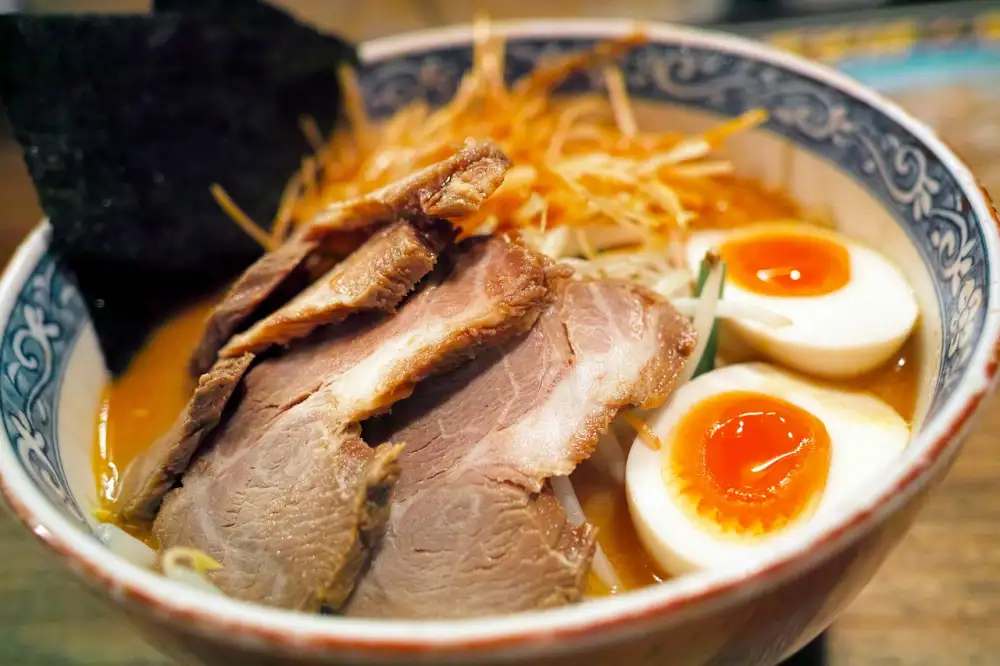Perfectly Soft Boiled Eggs: Master the Art of Timing with Our Foolproof Recipe

- Importance of timing for the perfect soft-boiled egg
- Step-by-step guide on how to soft boil an egg
- Start with room temperature eggs
- Place eggs in a saucepan and cover with cold water
- Bring water to a boil
- Reduce heat and simmer for the desired time
- Remove eggs from heat and transfer to an ice bath
- Recommended cooking times for different levels of softness
- Soft-boiled with a runny yolk (4-5 minutes)
- Soft-boiled with a slightly set yolk (6-7 minutes)
- Soft-boiled with a fully set yolk (8-9 minutes)
- Tips for achieving the perfect soft-boiled egg
- Adjust cooking time based on egg size and altitude
- Use a timer to ensure precise timing
- Experiment with different cooking times to find your preferred consistency
- Serving suggestions and variations for soft-boiled eggs
- Sprinkle with salt and pepper
- Serve with toast soldiers or crusty bread
- Add toppings like fresh herbs or grated cheese
Soft-boiled eggs are a culinary delight that combines the best of both worlds - a firm white and a creamy, runny yolk. They are the epitome of breakfast perfection, offering a rich and satisfying start to your day. Whether enjoyed on their own or as a topping for toast or salads, soft-boiled eggs are versatile and delicious. In this article, we will guide you through the art of timing to achieve the perfect soft-boiled egg every time. Get ready to elevate your breakfast game with our foolproof recipe!
Importance of timing for the perfect soft-boiled egg
Timing is crucial when it comes to achieving the perfect soft-boiled egg. The difference of just a few seconds can determine whether your yolk is runny, slightly set, or fully set. Overcooking can result in a dry and rubbery texture, while undercooking may leave you with a raw center. Mastering the art of timing is essential for that ideal balance between a tender white and a creamy yolk. With our foolproof recipe, you'll be able to achieve consistent results every time.
Step-by-step guide on how to soft boil an egg
To achieve the perfect soft-boiled egg, follow these simple steps:
a. Start with room temperature eggs. This ensures even cooking and prevents cracking.
b. Place the eggs in a saucepan and cover them with cold water. Make sure the water level is about an inch above the eggs.
c. Bring the water to a boil over medium-high heat. Once boiling, reduce the heat to low and let it simmer gently.
d. Cook the eggs for the desired time based on your preferred level of softness. Refer to our recommended cooking times for guidance.
e. After cooking, carefully remove the eggs from heat and transfer them to an ice bath. This stops the cooking process and helps in easy peeling.
By following these steps, you'll be able to master the art of soft-boiling eggs and enjoy their perfectly creamy texture every time!
Start with room temperature eggs
To achieve perfectly soft-boiled eggs, it is essential to start with room temperature eggs. This ensures that the eggs cook evenly and consistently. Cold eggs straight from the refrigerator can result in uneven cooking, with the outside being overcooked while the inside remains undercooked. By allowing the eggs to come to room temperature, you create a more controlled cooking environment and increase your chances of achieving that ideal soft-boiled texture.
Place eggs in a saucepan and cover with cold water
To begin the process of soft-boiling eggs, carefully place the desired number of eggs in a saucepan. Make sure to use room temperature eggs for even cooking. Once the eggs are in the saucepan, cover them completely with cold water. The water level should be about an inch above the eggs. This will ensure that they cook evenly and prevent any cracking during the boiling process.
Bring water to a boil
Once the eggs are in the saucepan and covered with cold water, it's time to bring the water to a boil. Place the saucepan on the stove over medium-high heat and allow the water to come to a rolling boil. This usually takes around 5-7 minutes. Keep an eye on the pot as it heats up, but avoid stirring or agitating the eggs too much. The gentle boiling motion will help cook the eggs evenly and prevent them from cracking.
Reduce heat and simmer for the desired time
Once the water has come to a boil, reduce the heat to low and let the eggs simmer for the desired time. The cooking time will depend on how soft or firm you want your yolk to be. For a soft-boiled egg with a runny yolk, simmer for about 4-5 minutes. If you prefer a slightly set yolk, cook for 6-7 minutes. And for a fully set yolk, simmer for 8-9 minutes. Remember to set a timer to ensure precise timing and achieve the perfect consistency for your soft-boiled eggs.
Remove eggs from heat and transfer to an ice bath
Once the desired cooking time has been reached, carefully remove the eggs from the heat source using a slotted spoon. Immediately transfer them to an ice bath—a bowl filled with cold water and ice cubes—to halt the cooking process. This step is crucial as it helps prevent overcooking and ensures that the eggs are perfectly soft-boiled. Allow the eggs to sit in the ice bath for about 1-2 minutes, then gently tap them on a hard surface to crack the shell. The cold water will seep into the cracks, making it easier to peel off the shell without damaging the delicate egg white underneath.
Recommended cooking times for different levels of softness
To achieve the perfect soft-boiled egg, it's essential to master the art of timing. The cooking time will determine the consistency of the yolk, ranging from runny to fully set. Here are our recommended cooking times:
For a soft-boiled egg with a runny yolk, cook it for 4-5 minutes. This will give you a luscious and creamy center that is perfect for dipping toast soldiers or drizzling over salads.
If you prefer a slightly set yolk, aim for 6-7 minutes of cooking time. The yolk will still be tender and oozy, but with a bit more structure.
For those who enjoy a fully set yolk, cook the egg for 8-9 minutes. This will result in a firm yet still moist center that is ideal for slicing onto sandwiches or adding to grain bowls.
Remember, these times may vary depending on factors such as egg size and altitude. It's always best to start with these guidelines and adjust according to your preference.
Experimenting with different cooking times is key to finding your preferred consistency. Whether you like your soft-boiled eggs runny or more well-done, mastering the art of timing will ensure culinary bliss every time you crack open that perfectly cooked shell.
Soft-boiled with a runny yolk (4-5 minutes)
Soft-boiling an egg for 4-5 minutes will result in a soft, runny yolk that is perfect for dipping toast or drizzling over salads. This level of doneness allows the yolk to remain liquid while the white sets. To achieve this, follow the step-by-step guide mentioned earlier, and make sure to set a timer for precisely 4-5 minutes. Remember, timing is crucial in achieving the desired consistency. Enjoy the lusciousness of a perfectly soft-boiled egg with a delightfully runny yolk!
Soft-boiled with a slightly set yolk (6-7 minutes)
For those who prefer a slightly set yolk, the ideal cooking time for a soft-boiled egg is around 6-7 minutes. This will give you a yolk that is still creamy and runny in the center, but with a slightly firmer texture. The whites will be fully cooked and set, providing a perfect balance of textures. Remember to adjust the cooking time based on the size of your eggs and your altitude to achieve the desired consistency. With this timing, you can savor the delicate richness of a soft-boiled egg without it being too runny or too firm.
Soft-boiled with a fully set yolk (8-9 minutes)
Soft-boiled eggs with a fully set yolk require a cooking time of 8-9 minutes. This results in a firm, yet creamy yolk that is perfect for those who prefer a more solid texture. The whites are fully cooked and set, making it easier to handle and enjoy. Whether you're planning to use these eggs in salads or simply enjoy them on their own, the 8-9 minute mark ensures a satisfying and delicious soft-boiled egg experience.
Tips for achieving the perfect soft-boiled egg
a. Adjust cooking time based on egg size and altitude: Larger eggs may require slightly longer cooking times, while smaller eggs may need less time. Additionally, if you live at a higher altitude, you may need to increase the cooking time to compensate for the lower boiling point of water.
b. Use a timer to ensure precise timing: Timing is crucial when it comes to soft-boiling eggs. Using a timer will help you achieve consistent results every time. Set the timer as soon as the water starts boiling and remove the eggs promptly once they reach your desired level of doneness.
c. Experiment with different cooking times to find your preferred consistency: Everyone has their own preference when it comes to soft-boiled eggs. If you prefer a runnier yolk, try reducing the cooking time by a minute or two. Similarly, if you like a firmer yolk, increase the cooking time slightly. Don't be afraid to experiment until you find your perfect soft-boiled egg.
Remember, mastering the art of soft-boiling eggs takes practice and patience. With these tips in mind, you'll be well on your way to enjoying perfectly cooked soft-boiled eggs every time.
Adjust cooking time based on egg size and altitude
When it comes to achieving the perfect soft-boiled egg, adjusting the cooking time is crucial. The size of the egg and the altitude at which you are cooking can greatly affect the outcome. Larger eggs will require slightly longer cooking times, while smaller eggs will need less time. Additionally, if you are at a higher altitude, you may need to increase the cooking time slightly to compensate for the lower boiling point of water. It's important to keep these factors in mind to ensure that your soft-boiled eggs turn out exactly as desired.
Use a timer to ensure precise timing
Using a timer is essential for achieving precise timing when soft-boiling eggs. This simple tool ensures that you don't overcook or undercook your eggs, resulting in the perfect texture every time. Set the timer according to your desired level of softness and let it do the work for you. Whether you prefer a runny yolk or a fully set one, a timer will help you achieve consistent results and take the guesswork out of timing. So, don't forget to rely on this handy device to master the art of soft-boiling eggs.
Experiment with different cooking times to find your preferred consistency
Experimenting with different cooking times is key to finding your preferred consistency for soft-boiled eggs. If you prefer a runny yolk, try boiling the eggs for around 4-5 minutes. For a slightly set yolk, aim for 6-7 minutes of cooking time. And if you prefer a fully set yolk, go for 8-9 minutes. Remember that these times may vary depending on the size of the eggs and your altitude, so don't be afraid to adjust accordingly. By experimenting with different cooking times, you'll be able to achieve the perfect soft-boiled egg every time.
Serving suggestions and variations for soft-boiled eggs
Serving suggestions and variations for soft-boiled eggs are endless, allowing you to customize your dish to suit your taste. For a simple yet classic option, sprinkle your soft-boiled egg with a pinch of salt and pepper. The combination of the creamy yolk and the seasoning is simply divine. If you're looking for something heartier, serve your egg with toast soldiers or crusty bread for dipping. The contrast in textures will make each bite a delight. To elevate your soft-boiled egg even further, get creative with toppings like fresh herbs or grated cheese. Experiment with different flavors to find the perfect combination that will leave you craving more.
Sprinkle with salt and pepper
Sprinkling soft-boiled eggs with a pinch of salt and pepper is a simple yet classic way to enhance their flavor. The salt adds a savory touch, while the pepper adds a subtle hint of spice. Be sure to use high-quality sea salt and freshly ground black pepper for the best results. Gently crack the top of the egg with a spoon, sprinkle on the seasonings, and enjoy the delightful combination of creamy yolk and perfectly seasoned whites. It's a quick and easy way to elevate your soft-boiled eggs to new heights of deliciousness.
Serve with toast soldiers or crusty bread
Soft-boiled eggs are a versatile and delicious dish that can be enjoyed in a variety of ways. One classic way to serve soft-boiled eggs is with toast soldiers or crusty bread. The combination of the creamy yolk and crispy bread is simply irresistible. To create toast soldiers, simply toast slices of bread and cut them into thin strips. These strips can then be dipped into the soft-boiled egg, allowing you to enjoy the perfect balance of textures and flavors. Alternatively, you can also spread butter on crusty bread and top it with slices of soft-boiled egg for a simple yet satisfying breakfast or snack. Whichever way you choose to serve it, soft-boiled eggs with toast soldiers or crusty bread are sure to delight your taste buds.
Add toppings like fresh herbs or grated cheese
To elevate the flavors of your perfectly soft-boiled eggs, consider adding toppings like fresh herbs or grated cheese. Sprinkle some finely chopped chives or parsley over the eggs for a burst of freshness. The vibrant green color will also add visual appeal to your dish. Alternatively, grate some Parmesan or cheddar cheese on top for a creamy and savory twist. The melted cheese will create a delightful contrast with the softness of the egg yolk. Experiment with different combinations to find your favorite flavor profile and take your soft-boiled eggs to new heights of culinary bliss.
In conclusion, mastering the art of soft-boiling eggs is all about timing. With our foolproof recipe and step-by-step guide, you can achieve perfectly soft-boiled eggs every time. Remember to start with room temperature eggs, simmer for the desired time, and transfer to an ice bath to stop the cooking process. Experiment with different cooking times to find your preferred consistency and don't forget to adjust based on egg size and altitude. Serve your soft-boiled eggs with a sprinkle of salt and pepper, toast soldiers or crusty bread, and get creative with toppings like fresh herbs or grated cheese. So go ahead and indulge in the culinary bliss of perfectly soft-boiled eggs!
Published: 23. 11. 2023
Category: Food



